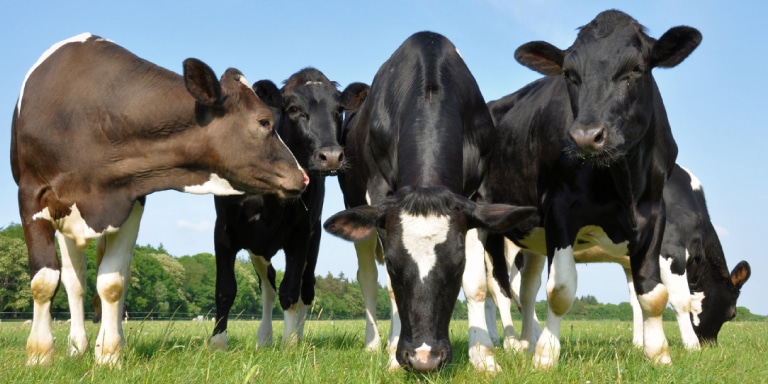
Farmers fearing forage shortages because of the recent dry weather could help ease the pressure by feeding a straw or wholecrop-based ration to dry cows and youngstock.
According to our Senior Nutritionist Dr Robin Hawkey, straw and wholecrop are good forage replacers when supplemented with the right protein level.
They can offer a cost-effective solution with straw prices remaining relatively low following a good grain harvest.
Dr Hawkey advised dairy farmers to prioritise quality silage for the milking herd and use straw or wholecrop-based rations for the remaining stock.
He said: “It’s essential to ensure the short-term challenges now don’t cause long-term issues in your herd.
“If you don’t feed your dry cows adequately, this is particularly bad news, as when a dry cow starts to lose weight, they can go into a negative energy balance. In a close-up dry cow, this could predispose her to metabolic diseases when she calves.”
Likewise, feeding an inadequate diet to heifers could limit growth rates, impacting fertility, age at first calving and the overall productivity of the herd.
Straw-based rations need to be carefully balanced in terms of protein, specifically rumen degradable protein, often supplied by compounds and blends including rapeseed and feed-grade urea.
Molasses-based products such as Regumaize and Nutrimaize also contain urea but have the additional benefit of sugar, which helps support the energy supply. Adequate mineral and vitamin provision need to be considered, especially calcium supply for dry cows and biotin for heifers.
Farmers without the ability to mix a total mixed ration (TMR) can also feed straw by simply letting molasses soak into the bale fed in a ring feeder.
A new product from Mole Valley Feed Solutions, Lifetime Heifer 24, is a consequence of a recent research trial at Nottingham University.
Not only containing 24% protein to balance rations and promote excellent heifer frame growth, it also contains specific minerals and vitamins to maintain optimal health. It offers high levels of bypass protein and allows heifers to achieve their full genetic potential.
Dr Hawkey added: “It’s important that silage stocks are measured at an early stage as relatively small actions taken now can have a big impact over the next winter. With increasing milk prices, farmers must not lose this opportunity to maintain output, but it’s vital not to compromise dry cows and heifers by not feeding them adequately.”
Recommended mixes (for best results mix daily)

Contact your local nutritionist or call the Alternative Feeds and Blends line on 01566 780261.